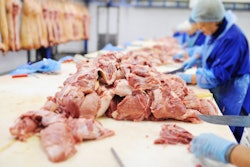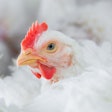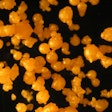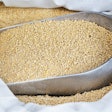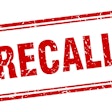
Digital feed ingredient tracing may be the way of the future after COVID-19, MarinTrust says
After beginning to move its auditing process online due to the novel coronavirus (COVID-19) pandemic, the CEO of MarinTrust, an international certifier of marine feed ingredients, says tracing and verifying feed components may have a digital future.
MarinTrust was already exploring the notion of digital auditing before the pandemic, according to CEO Francisco Aldon. He said COVID-19 has accelerated the need for innovation with respect to chain of custody and traceability concerns, revealing the potential, and limits, of online auditing.
Though safety is paramount during a pandemic, Aldon said it was important to find a way for chain of custody audits to continue to avoid damaging aquaculture’s reputation in the eyes of the public.
“Maybe less fish is being sold at this point, but [fishmeal plants] are still producing,” Aldon said. “If production is still happening, then there is risk that something wrong could happen. This is an unprecedented event and people are under stress; that’s why we feel it’s important to maintain this assurance.”
Aldon said MarinTrust has been working with other certification programs to identify how much of the auditing process can be completed remotely. Though they concluded that in-person inspections will be necessary to complete chain-of-custody evaluations, they also found a great deal of the process can be completed online. Documentation and company policies, for example, can be transmitted in digital formats in most cases. Staff can be interviewed remotely via Zoom.
“This has not been a wake-up call, more like a, ‘Wow, we can actually do this,’” Aldon said. “The pressure has made us prioritize that and has given us the idea that this is the thing to do in the future, as a complement” to in-person inspections.
Conducting part of their audits online could come with a host of benefits, Aldon said. It could reduce the risk of spreading COVID-19, as well as a host of other livestock and human diseases. It would also cut down on costs and reduce the industry’s carbon footprint. And it could also offer employment opportunities for experienced aquaculture employees who have invaluable experience, but whose travel may be restricted the months or years to come if they are over age 55 and therefore at risk of serious complications if they contract COVID-19.
“The situation at the moment has accelerated the pace of development and we have to adapt to it,” Aldon said. However, he said, “we need to take a step-by-step approach. We can’t just go straight into it.”
Because MarinTrust is training its auditors on the new online system, the certification company has released a new policy extending the deadline for required inspects by four months. Companies that require inspections for recertification will have their certificates extended for six months. MarinTrust will not be accepting new applications for certification until travel restrictions tied to COVID-19 have been lifted.
Because some components of the auditing process cannot be completed effectively online, Aldon said those companies that receive a remote audit when activity resumes will still need to schedule an in-person inspection at a later date to complete the process.
View our continuing coverage of the novel coronavirus (COVID-19) pandemic.



